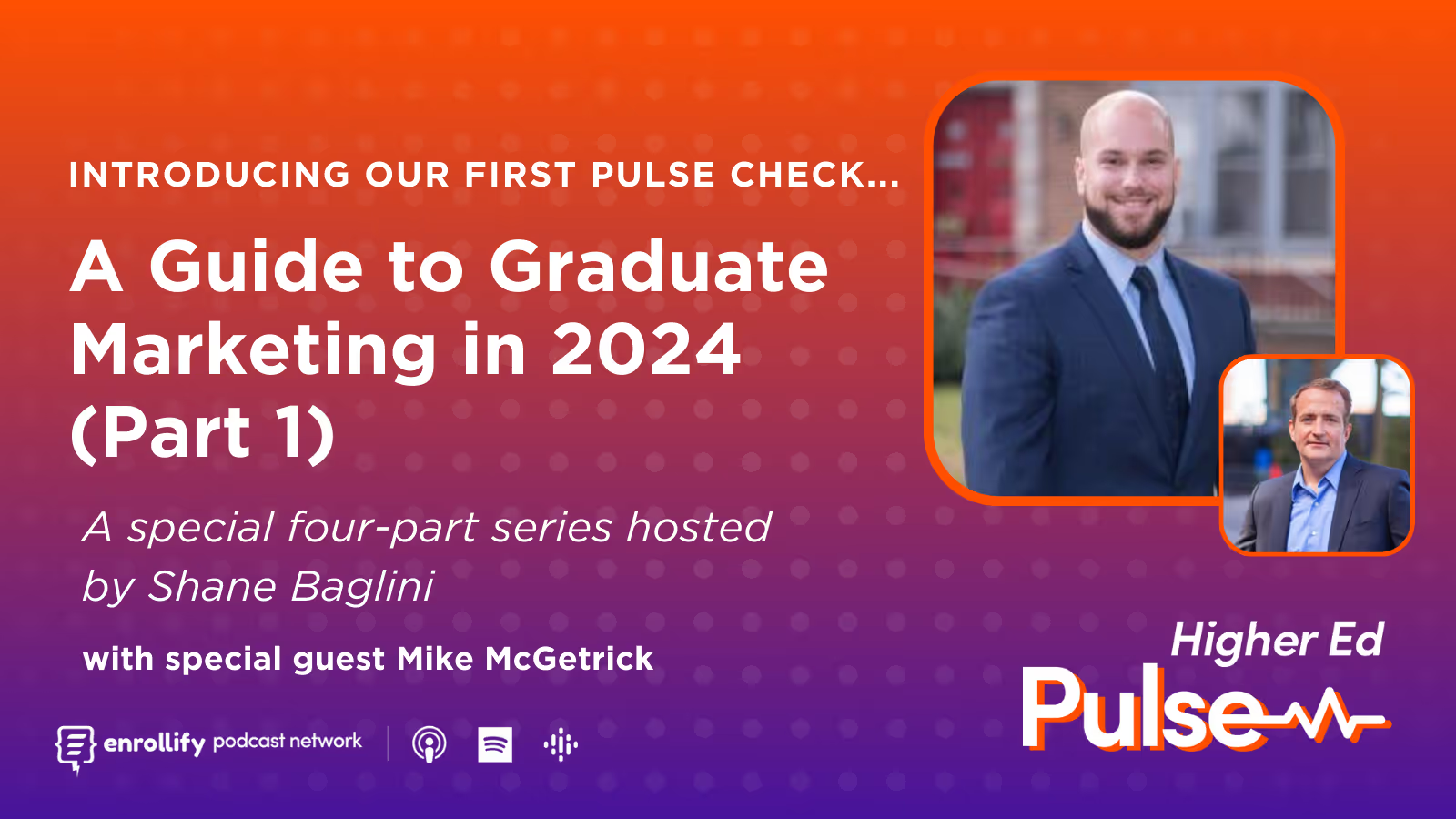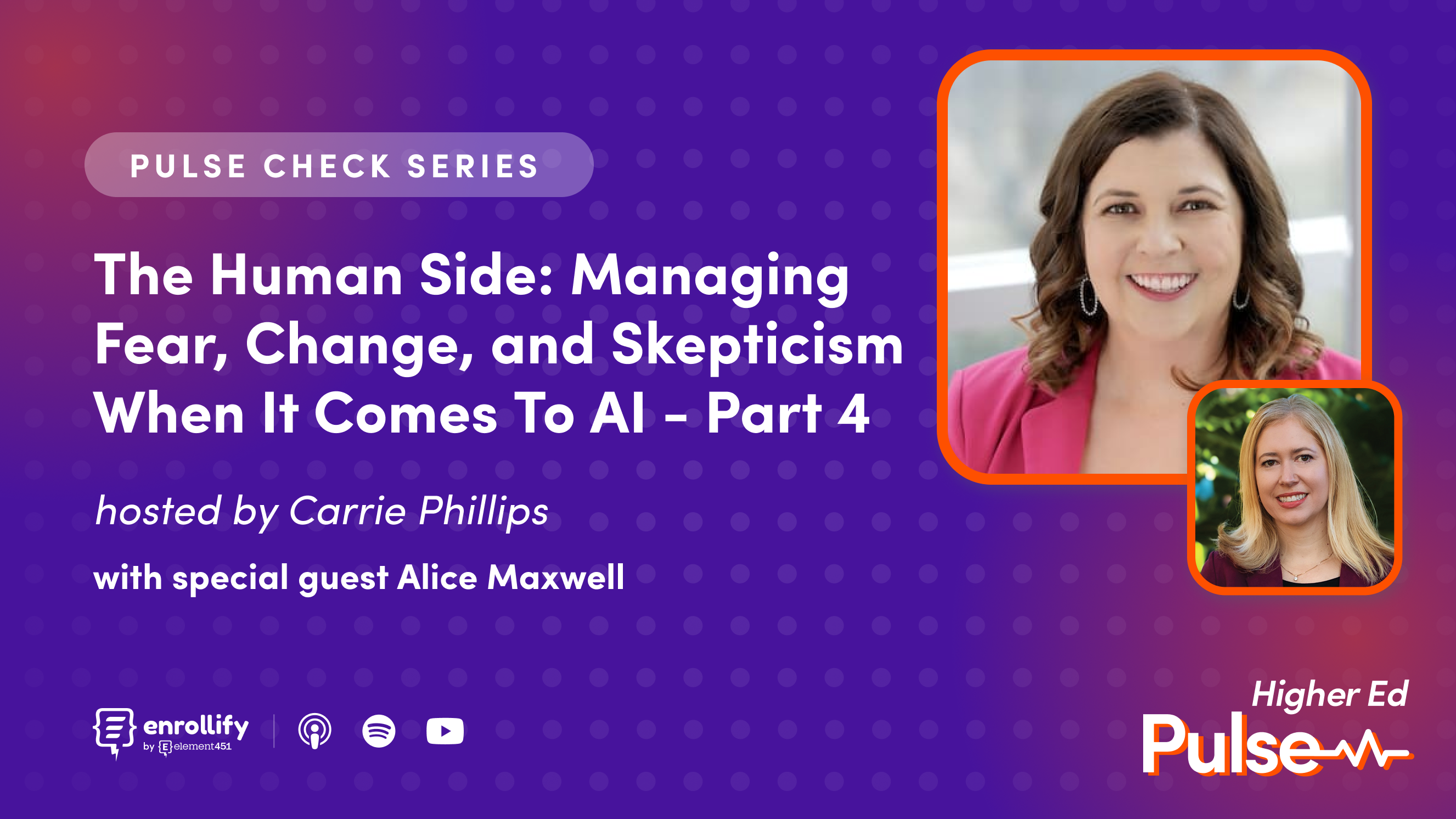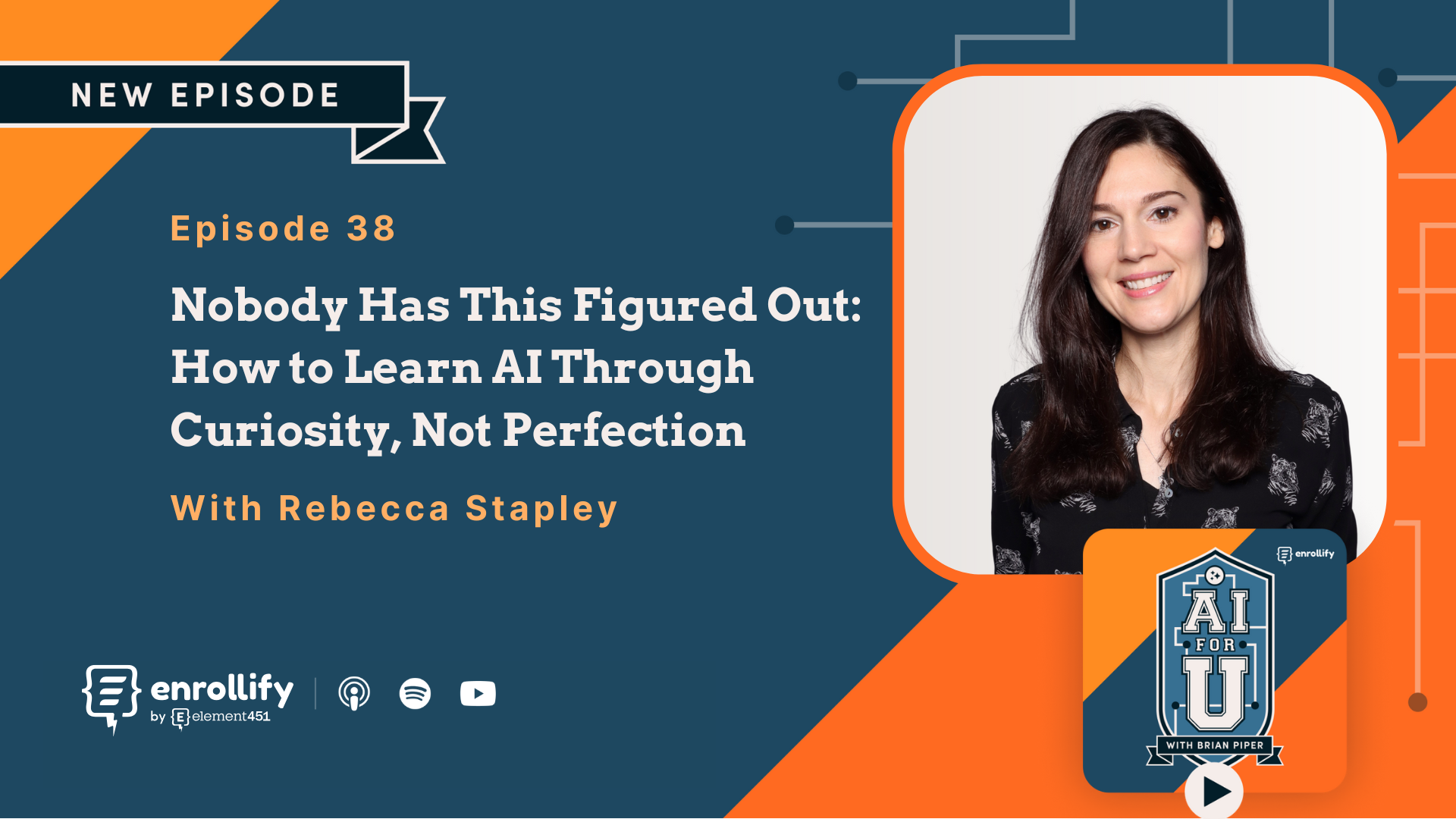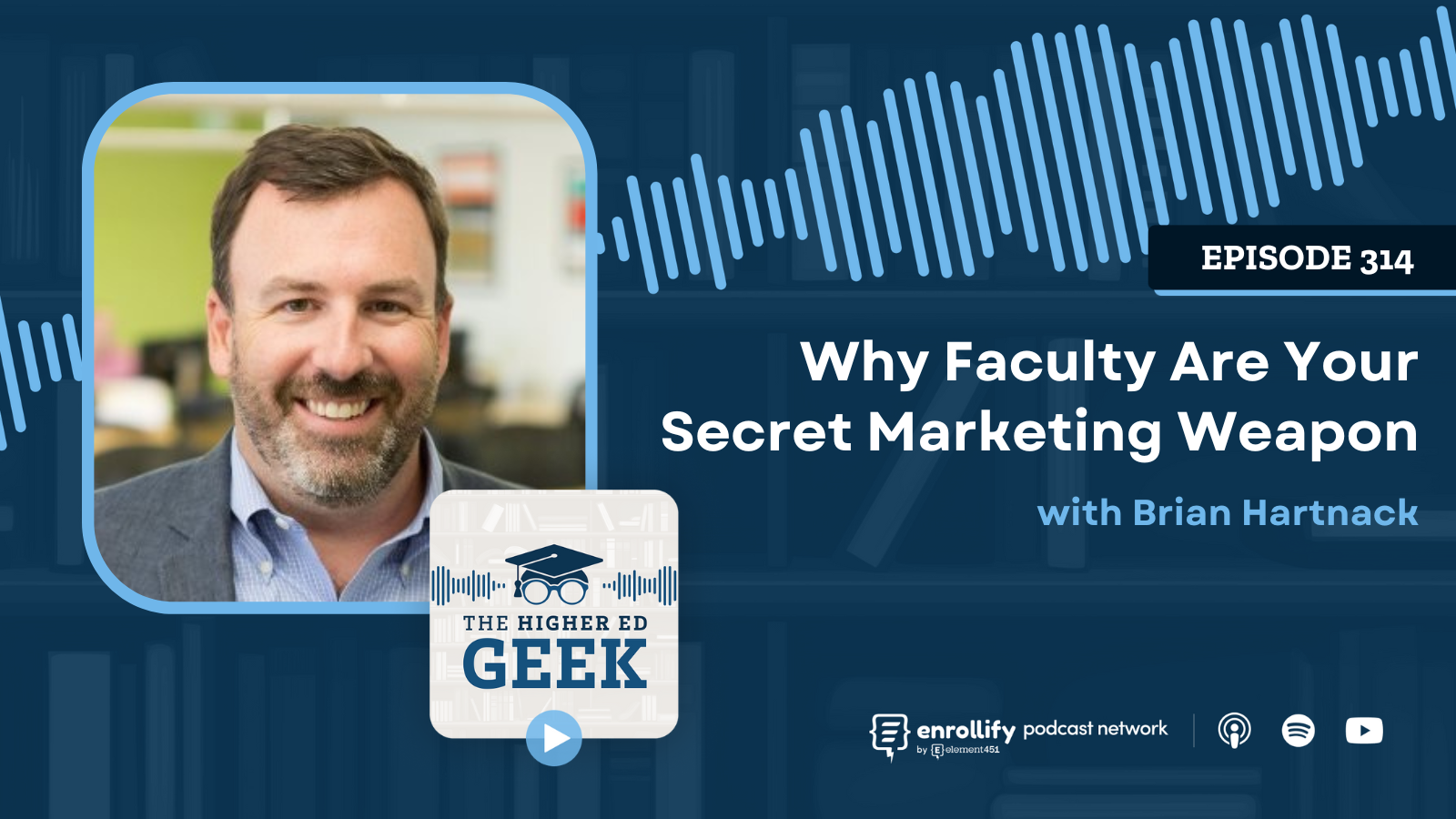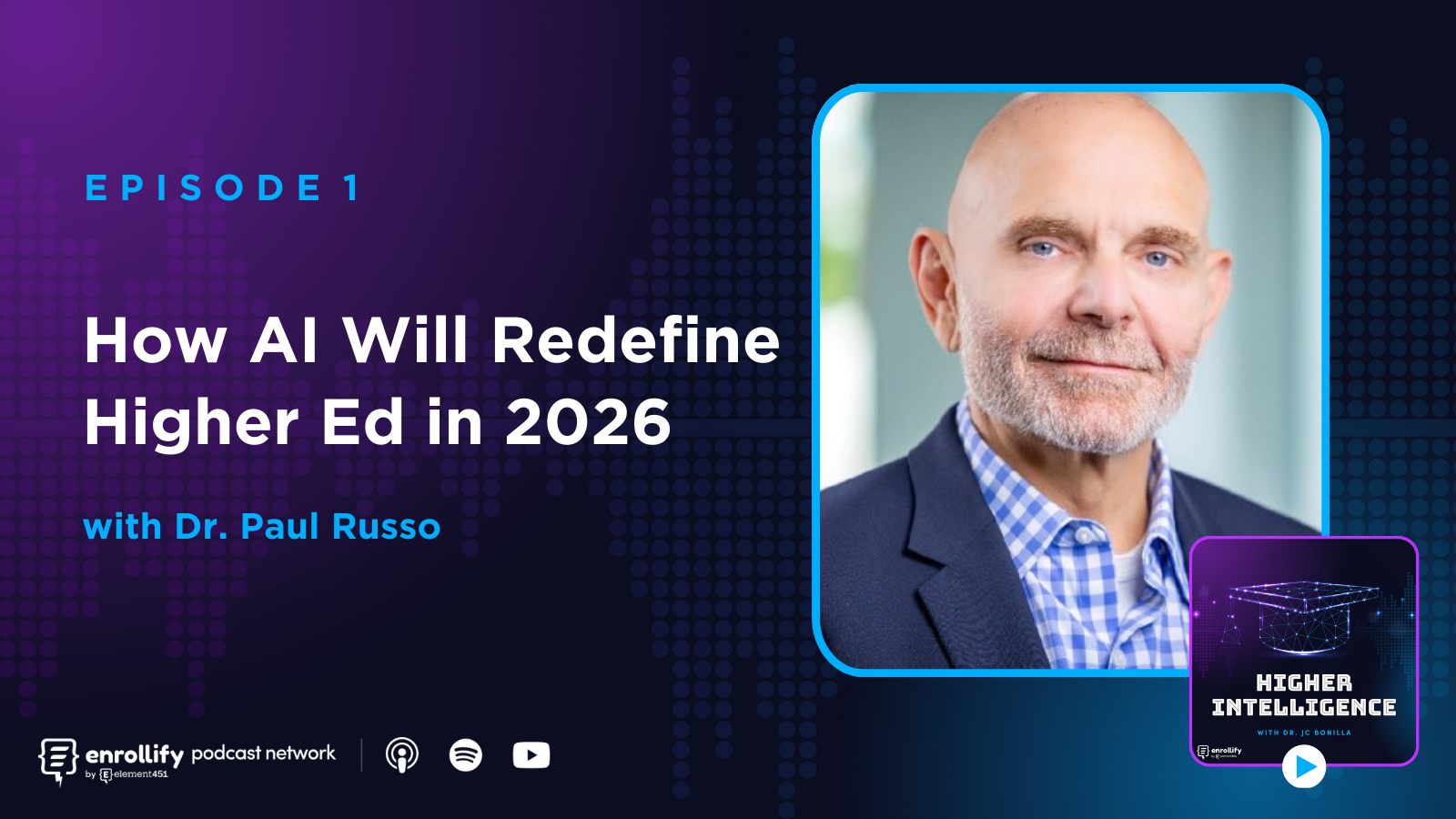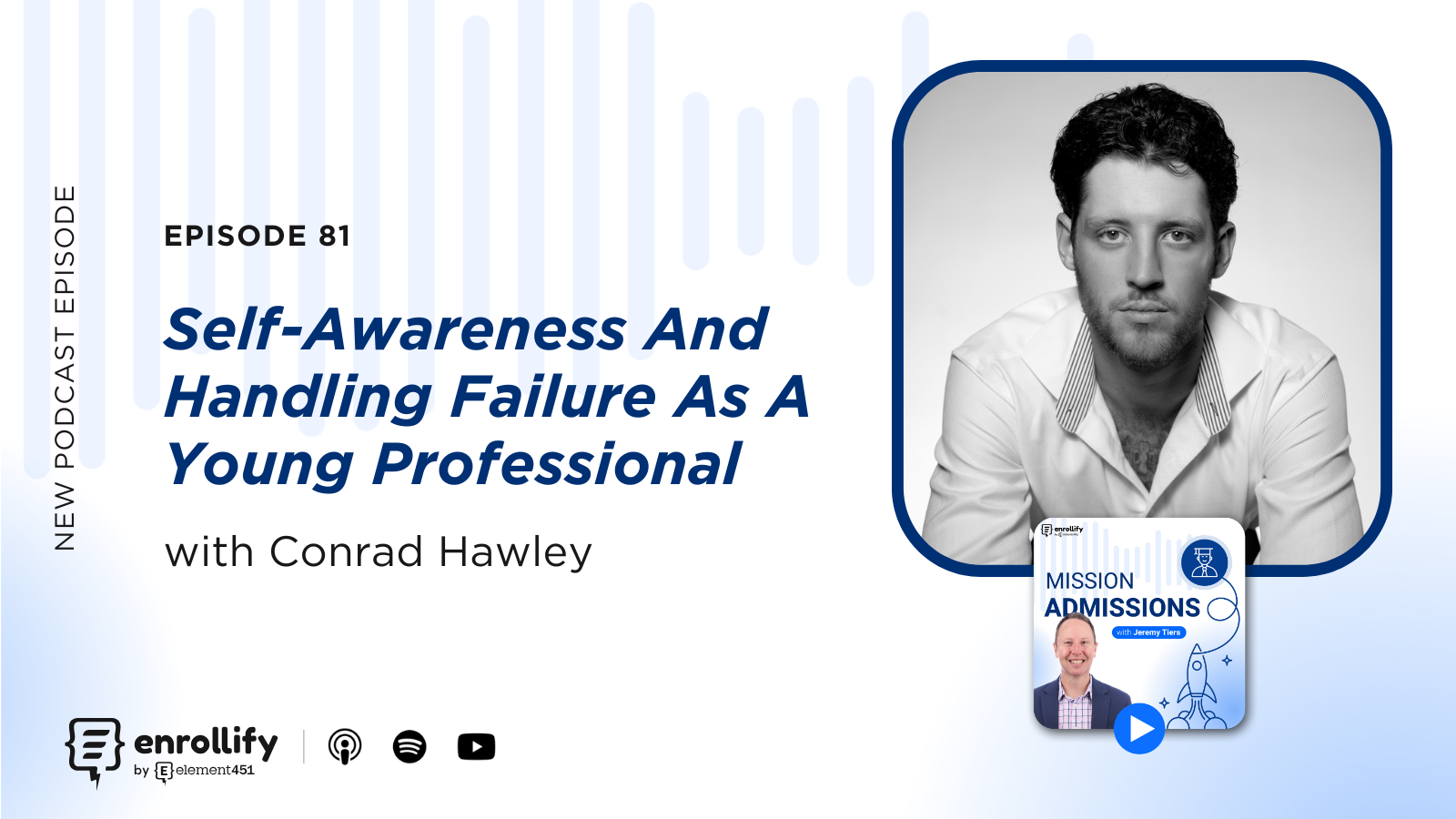About the Episode
Welcome to our latest Pulse Check - A Guide to Graduate Marketing in 2024, hosted by Shane Baglini.
In Part 1 of this series, Mike McGetrick, Vice President of Creative and Interactive Services at Spark451, joins Shane Baglini to offer a high level overview of graduate marketing in 2024. Mike and Shane dive into the nuances and differences in strategy and tactics when marketing to the graduate audience, the value of a graduate degree in 2024, the graduate student journey and Mike shares trends and an outlook as we approach the demographic cliff.
Key Takeaways
- Graduate Degrees: Still Relevant and Transformative
Graduate education offers comprehensive, trajectory-shifting experiences, positioning students for advanced careers or entirely new fields, unlike skill-based microcredentials. - Understanding the Graduate Student Journey
The graduate decision-making process often spans years. Effective strategies must include consistent engagement through nurturing, personalized communication, and compelling value propositions. - Post-COVID Shifts in Graduate Marketing
Online education dominates searches, hybrid models are in demand, and virtual recruitment events require higher production value to engage audiences effectively. - Embracing Innovation
AI-driven program development and immersive technologies like AR/VR will shape the future of graduate education, offering institutions new opportunities to stand out.
What makes graduate marketing more challenging than undergraduate recruitment?
Graduate marketing requires addressing highly specific, career-driven motivations. Unlike undergraduates seeking transformative life experiences, graduate students prioritize tangible outcomes such as salary increases, career changes, or specialized expertise.
How can schools demonstrate the value of graduate degrees in a competitive landscape?
Institutions must emphasize the transformative power of graduate education. Messaging should focus on:
- Career advancements enabled by graduate degrees.
- The comprehensive, outcome-oriented design of graduate programs.
- Data-driven success stories showcasing alumni achievements.
What are the main motivators for prospective graduate students?
- Career Advancement: Standing out in competitive fields often requires advanced degrees.
- Career Change: Graduate programs provide pathways to pivot from liberal arts or unrelated undergrad degrees into high-demand fields.
- Deepening Knowledge: Students passionate about a subject often seek graduate education to expand their expertise.
How can marketers effectively engage prospective graduate students over long decision-making cycles?
- Use CRM tools to track and nurture leads through personalized campaigns.
- Provide consistent value through content marketing, virtual events, and success stories.
- Reinforce value at every stage, from inquiry to enrollment, ensuring engagement post-decision to reduce attrition.
What has changed in graduate recruitment post-COVID?
- Preference for Online and Hybrid Programs: Searches for online graduate programs have skyrocketed.
- Lower Event Attendance: On-campus event attendance has dipped, while virtual events now demand higher production quality to engage prospective students.
- Heightened Digital Competition: Platforms like Facebook amplify competition by showcasing ads from multiple institutions to targeted audiences.
What opportunities and challenges lie ahead for graduate marketers?
- Opportunities: New fields driven by AI and immersive tech like AR/VR could lead to program innovation and enrollment growth.
- Challenges: Rising pressures from leadership to offset undergrad enrollment declines may lead to unrealistic expectations for graduate programs.
Guest Bio: Mike McGetrick is a marketing communications professional and educator with more than 30 years of experience in the higher education marketing field. Mike leverages cross-disciplinary experience to solve a wide array of challenges for his clients at Spark451. He leads the creative and digital services groups and is the graduate marketing practice lead.
In the course of his career as a marketing agency executive, Mike has worked at numerous New York-based agencies and in the Creative Studio at Disney Television. Mike is also an adjunct professor at NYU, where he teaches digital marketing. Mike has been a host faculty member for the NAGAP executive professional development workshops on interactive marketing. He holds a Bachelor of Arts in English and Studio Art from Brooklyn College and an MSM and MBA from New York University.







